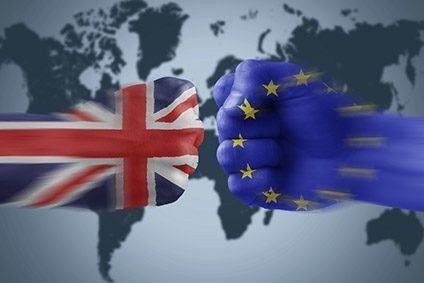On the surface, the UK’s zero-tariff, zero-quota Brexit deal appeared to be a good thing for the country’s apparel industry. But the reality is proving to be much more complex, and UK retailers will need to carefully assess whether international operations are still profitable and feasible.
New borders mean new hurdles, and since the legislation came into effect on 1 January 2021, shipping has become pricier and goods moving between the UK and EU must now abide by rules of origin procedures.
Tariff-free access from the UK to the EU can now only be gained if the entire sourcing and manufacturing process occurs in the UK. This creates huge challenges, as many fabrics such as cotton, polyester and silk are predominantly sourced in the Far East. Consider UK apparel behemoth Boohoo Group: although it produces at least half of its garments in the UK, the vast majority are made from polyester, which will incur an 8% tariff upon entry into the UK. After production, goods made with this fabric will then incur an additional 12% tariff when shipped out to the EU, tightening profit margins and harming bottom line.
The hassle of all this red tape is further compounded by the increased price of shipping goods. TNT has added a GBP4.31 charge on all shipments between the UK and the EU to manage the legislative changes. With DHL and UPS enacting similar policies, increasing expenses may mean it is more profitable for a retailer to cease international operations altogether. The best course of action requires scrupulous analysis of the true cost of an international customer’s transaction, accounting not only for the cost of the order, but also for its potential return.
Reportedly, some UK retailers who have continued to serve the EU market have found themselves in a stalemate after attempting to shift these supplementary shipping costs downstream to their customers, who are then refusing to pay extra upon receiving their orders and consequentially rejecting deliveries.
This is unsurprising, given that shoppers have grown accustomed to free shipping and returns – especially in the wake of the pandemic which has accelerated the shift towards online.

US Tariffs are shifting - will you react or anticipate?
Don’t let policy changes catch you off guard. Stay proactive with real-time data and expert analysis.
By GlobalDataAs a result, some UK retailers are storing the rejected products in costly third-party EU warehouses rather than returning them to the UK, to avoid the further costs required to ship and re-process the returned goods. Depending on a retailer’s proportion of EU customers, it may be more economical to establish a wholly-owned manufacturing and processing facility in the EU rather than outsourcing.
While this move would only be sensible for retailers with an EU customer base sufficiently large enough, the answer is not to simply revoke free international return policies, which Boohoo has already done in certain EU countries, with its shoppers sure to quickly grow disgruntled by these added costs.
Ideally, for UK-based retailers, these legislative changes may mean that UK shoppers increasingly shop domestically in a bid to avoid higher shipping fees. But, if these same UK retailers are paying tariffs on outside materials or have had to shut international operations to remain afloat, it’s unlikely that a spur in local demand would compensate for lost sales from the EU’s markets.
There is hope that with the UK’s formal application to join the Comprehensive and Progressive Agreement for Trans-Pacific Partnership (CPTPP) Asia-Pacific free trade bloc, new market opportunities are on the horizon, and that tariff-free access to key fabric markets could be gained. With the CPTPP reportedly representing around 13.5% of the global economy, this free trade agreement would be a major opportunity for UK apparel retailers to avoid tariffs whilst increasing global reach, particularly amongst emerging economies with impressive GDP per capita growth, including Malaysia and Vietnam.




